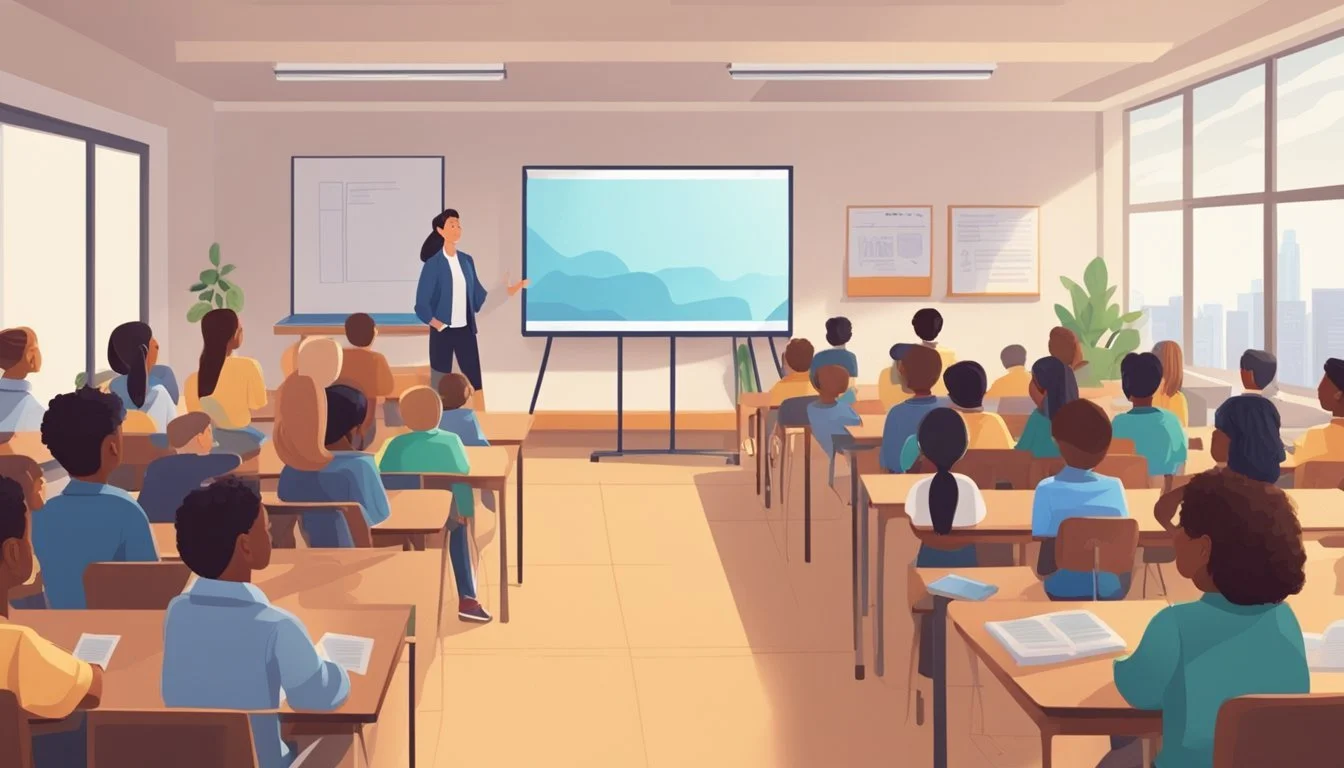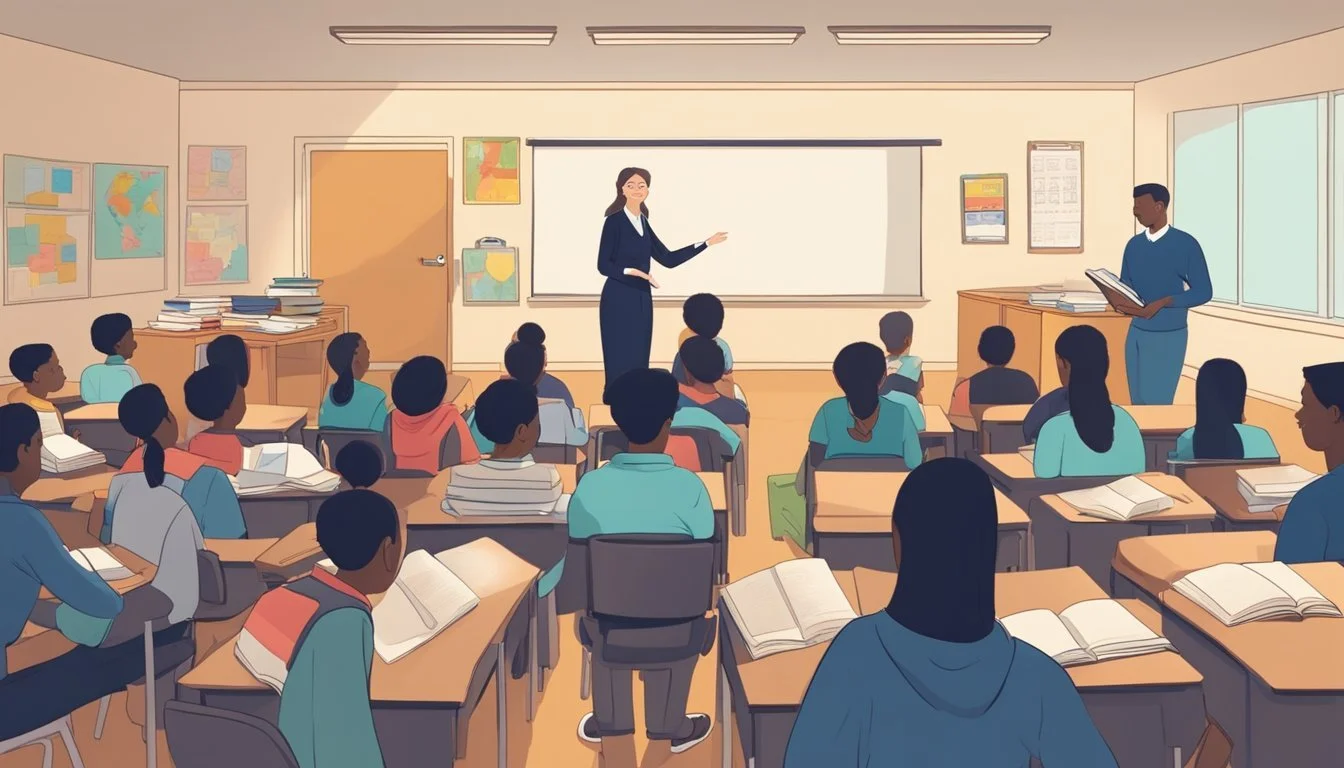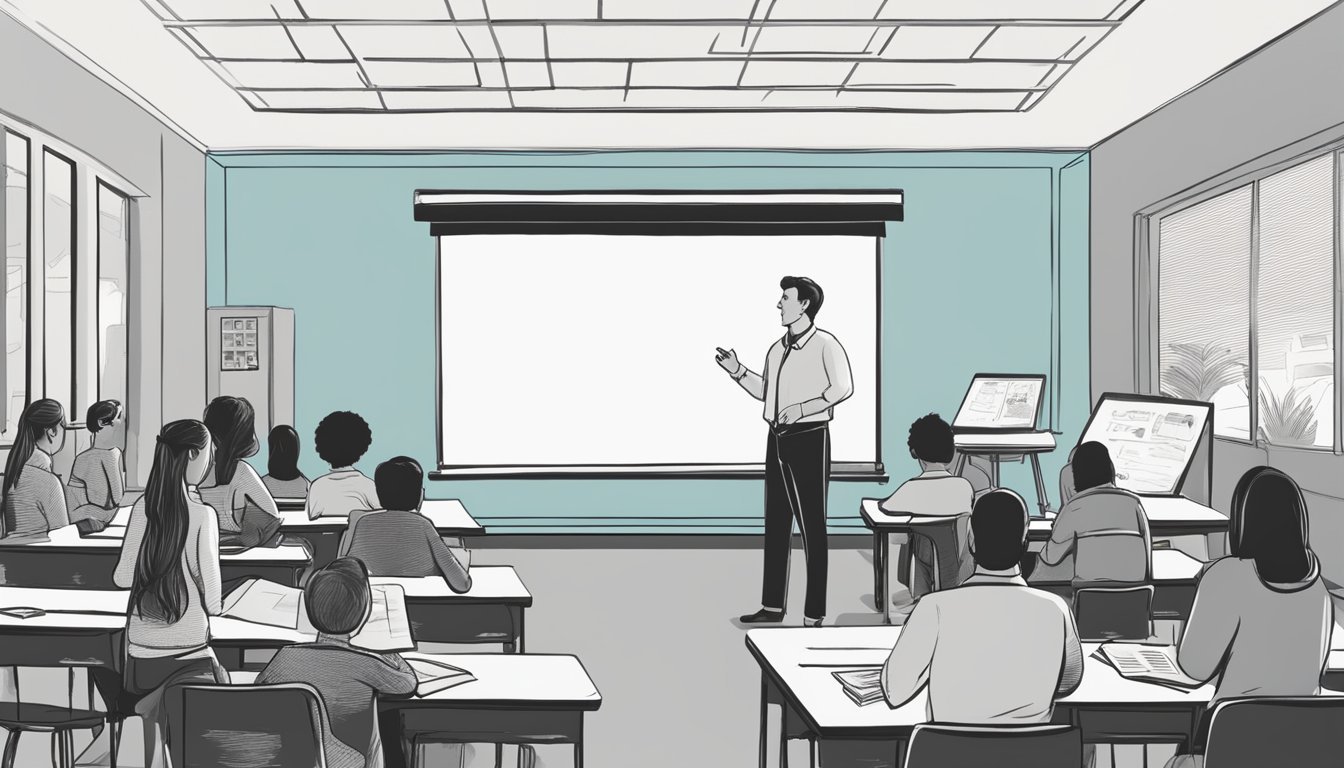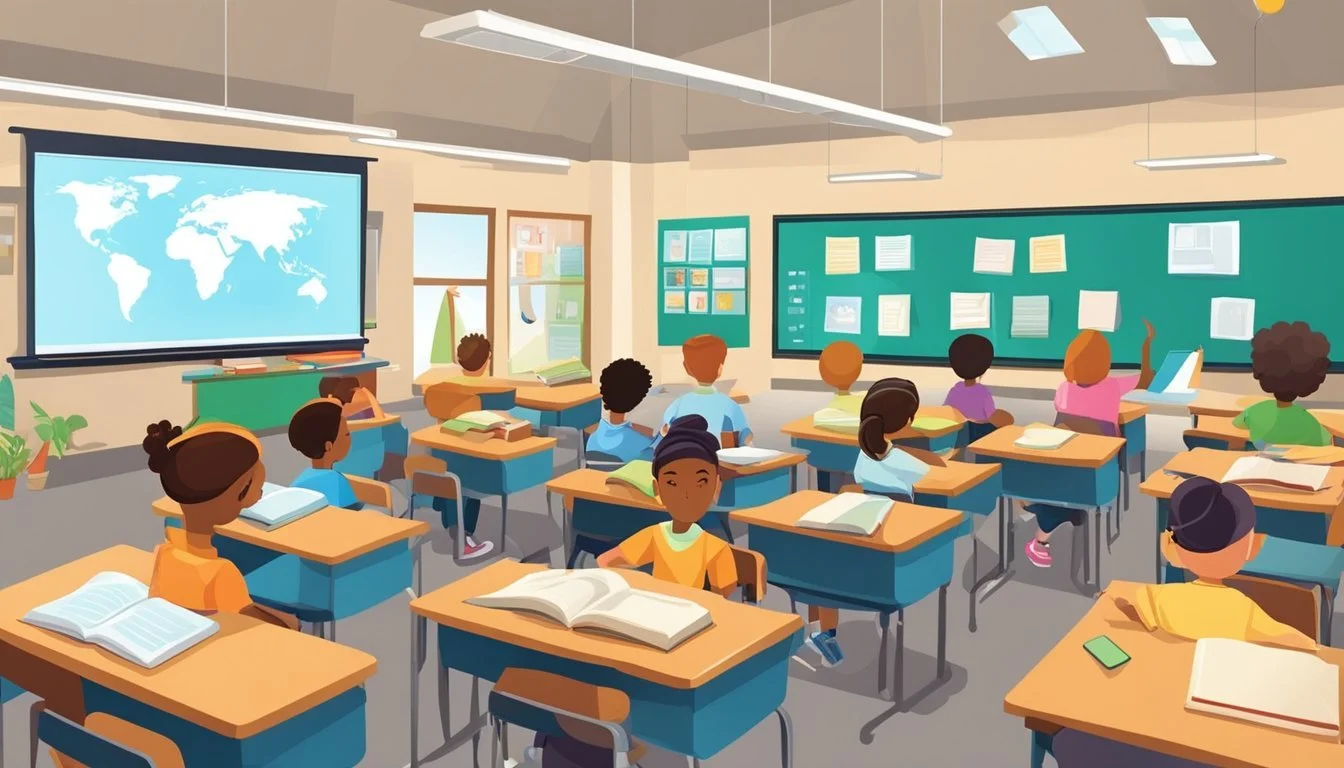6 Documentaries That Will Inspire Every Teacher
Educational Films for Professional Growth
Documentaries have the power to inspire, educate, and spark meaningful conversations about the state of education worldwide. These films offer unique perspectives on teaching methods, educational challenges, and innovative approaches to learning.
Educators can gain valuable insights and renewed motivation from documentaries that explore various aspects of the educational system. By examining different educational models and success stories, teachers may discover fresh ideas to implement in their own classrooms and schools. These thought-provoking films often highlight the dedication of educators and the transformative impact they can have on students' lives.
1) "Won't You Be My Neighbor?" - Morgan Neville (2018)
"Won't You Be My Neighbor?" offers an intimate look at the life and legacy of Fred Rogers, the beloved host of "Mister Rogers' Neighborhood." This documentary explores Rogers' commitment to children's education and emotional well-being through television.
The film showcases Rogers' innovative approach to addressing complex topics with young viewers, including death, divorce, and racism. It highlights his unwavering belief in treating children with respect and dignity.
Morgan Neville's direction brings to light Rogers' behind-the-scenes persona, revealing a man whose on-screen kindness was a genuine reflection of his character. The documentary features archival footage and interviews with family, friends, and colleagues.
Teachers will find inspiration in Rogers' dedication to fostering empathy and understanding in children. His methods demonstrate the power of gentle communication and the importance of emotional intelligence in education.
The film also touches on Rogers' advocacy for public television funding, showcasing his passionate defense before the U.S. Senate. This moment underscores the importance of fighting for educational resources.
More information on "Won't You Be My Neighbor?"
2) "He Named Me Malala" - Davis Guggenheim (2015)
"He Named Me Malala" is a documentary that profiles Malala Yousafzai, the Pakistani activist and youngest Nobel Peace Prize laureate. Directed by Davis Guggenheim, the film explores Malala's life and her fight for girls' education.
The documentary showcases Malala's journey from a young girl in Pakistan to a global advocate for education rights. It details the Taliban attack she survived at age 15 and her subsequent rise to international prominence.
Guggenheim's film offers an intimate look at Malala's relationship with her family, particularly her father Ziauddin. It reveals how her upbringing and her father's support shaped her activism.
The documentary combines interviews, archival footage, and animation to tell Malala's story. It highlights her continued efforts to ensure education for children worldwide, especially girls.
"He Named Me Malala" provides inspiration for educators by demonstrating the power of education and the impact one person can have on the world.
More information on "He Named Me Malala"
3) "The Ron Clark Story" - Randa Haines (2006)
"The Ron Clark Story" portrays the real-life experiences of an innovative educator who left his small hometown to teach in Harlem. The film stars Matthew Perry as Ron Clark, a passionate teacher determined to make a difference in his students' lives.
Set in one of New York City's toughest schools, the movie showcases Clark's unconventional teaching methods. His approach includes implementing unique classroom rules and using creative techniques to engage and motivate his students.
The film highlights the challenges Clark faces in connecting with his class and gaining their trust. It depicts his perseverance in the face of adversity and his unwavering belief in his students' potential.
Through Clark's dedication and innovative strategies, viewers witness the transformation of his students. The movie emphasizes the impact a committed teacher can have on struggling learners.
"The Ron Clark Story" serves as an inspiring tale for educators, demonstrating the power of passion and persistence in the classroom. It underscores the importance of adapting teaching methods to meet students' needs.
4) "Waiting for 'Superman'" - Davis Guggenheim (2010)
"Waiting for 'Superman'" examines the failures of American public education through the stories of five students. The film follows their struggles to enter high-performing charter schools via lottery systems.
Director Davis Guggenheim highlights issues like teacher unions, administrative bureaucracy, and the challenges faced by dedicated educators. He interviews education reformers and visits successful schools to explore potential solutions.
The documentary sparked national debate upon release. It received praise for bringing attention to education reform, while also facing criticism for its portrayal of charter schools and teachers' unions.
"Waiting for 'Superman'" won the Audience Award for Best Documentary at the 2010 Sundance Film Festival. It aims to inspire viewers to take action in improving the education system for future generations.
More information on "Waiting for 'Superman'"
5) "Most Likely to Succeed" - Greg Whiteley (2015)
Greg Whiteley's documentary "Most Likely to Succeed" examines the shortcomings of traditional education methods in the United States. The film highlights how current educational practices may not adequately prepare students for the challenges of the 21st century.
Whiteley explores innovative approaches to teaching and learning at High Tech High, a groundbreaking school in San Diego. The film showcases alternative curriculum designs and teaching methods aimed at fostering creativity, critical thinking, and problem-solving skills.
"Most Likely to Succeed" features interviews with education experts, teachers, and students. It also includes insights from Ken Jennings, a former Jeopardy! champion, who discusses his experience competing against IBM's Watson supercomputer.
The documentary encourages educators and policymakers to rethink conventional education systems. It emphasizes the importance of adapting teaching methods to better suit the needs of students in an increasingly technology-driven world.
More information about "Most Likely to Succeed"
6) "Teach Us All" - Sonia Lowman (2017)
"Teach Us All" examines educational inequality in the United States. Directed by Sonia Lowman, this documentary honors the Little Rock Nine while exploring ongoing challenges in the education system.
The film draws parallels between the 1957 Little Rock school integration crisis and present-day issues of segregation and unequal access to quality education. It highlights how schools remain at the forefront of civil rights battles.
Lowman's work investigates various forms of educational segregation, including residential, de facto, and hyper-segregation. The documentary showcases how these issues continue to impact students across the country.
"Teach Us All" premiered on Netflix in 2017, coinciding with the 60th anniversary of the Little Rock Nine's historic school integration. The film's release was accompanied by a national tour to raise awareness about educational inequalities.
By examining both historical events and current realities, "Teach Us All" provides a thought-provoking look at the ongoing struggle for equal educational opportunities in America.
More information about "Teach Us All"
Impact of Documentaries on Teaching
Documentaries have become powerful tools in modern education, revolutionizing teaching methods and enhancing student engagement. They provide unique perspectives and real-world examples that complement traditional classroom instruction.
Fostering Creativity and Innovation
Documentaries inspire teachers to explore innovative teaching approaches. By showcasing successful educational models and methodologies, these films encourage educators to experiment with new techniques in their classrooms.
Teachers often incorporate documentary clips or entire films into their lesson plans, sparking creative discussions and projects. This approach helps students connect abstract concepts to real-world situations, making learning more relevant and memorable.
Some educators use documentaries as springboards for collaborative assignments. Students might create their own short films or multimedia presentations inspired by the documentaries they've watched, fostering both creativity and digital literacy skills.
Encouraging Critical Thinking
Documentaries challenge students to analyze complex issues from multiple angles. They present diverse viewpoints and often tackle controversial topics, prompting viewers to question assumptions and develop informed opinions.
Teachers use documentaries to facilitate debates and discussions, encouraging students to evaluate evidence and construct logical arguments. This process enhances critical thinking skills and promotes active learning.
By exposing students to different cultures, historical events, and scientific discoveries, documentaries broaden perspectives and cultivate empathy. They encourage learners to consider global issues and their implications, fostering a more nuanced understanding of the world.
Documentaries also teach media literacy. Students learn to assess the credibility of sources, recognize bias, and distinguish between fact and opinion - essential skills in today's information-rich environment.
Utilizing Documentaries in the Classroom
Documentaries offer powerful visual learning tools that engage students and spark meaningful discussions. They bring real-world stories and diverse perspectives into the classroom, enhancing learning across subjects.
Incorporating Visual Learning
Documentaries provide a dynamic way to present complex topics. Teachers can use short clips or full-length films to illustrate key concepts. This visual approach helps students grasp abstract ideas more easily.
Visual cues in documentaries aid memory retention. Students often remember information better when it's paired with compelling imagery and narratives.
Documentaries also expose students to different filmmaking techniques. This can support media literacy skills and critical analysis of visual content.
Facilitating Classroom Discussions
Thought-provoking documentaries stimulate rich classroom conversations. Teachers can pause films at key moments to ask questions and encourage reflection.
Pre-viewing activities help set the context. Students can research related topics or brainstorm questions before watching.
Post-viewing discussions allow students to share insights and connect the documentary to course material. Teachers can use guided questions to focus the conversation on specific learning objectives.
Documentaries often present multiple viewpoints on complex issues. This encourages students to consider diverse perspectives and develop critical thinking skills.





